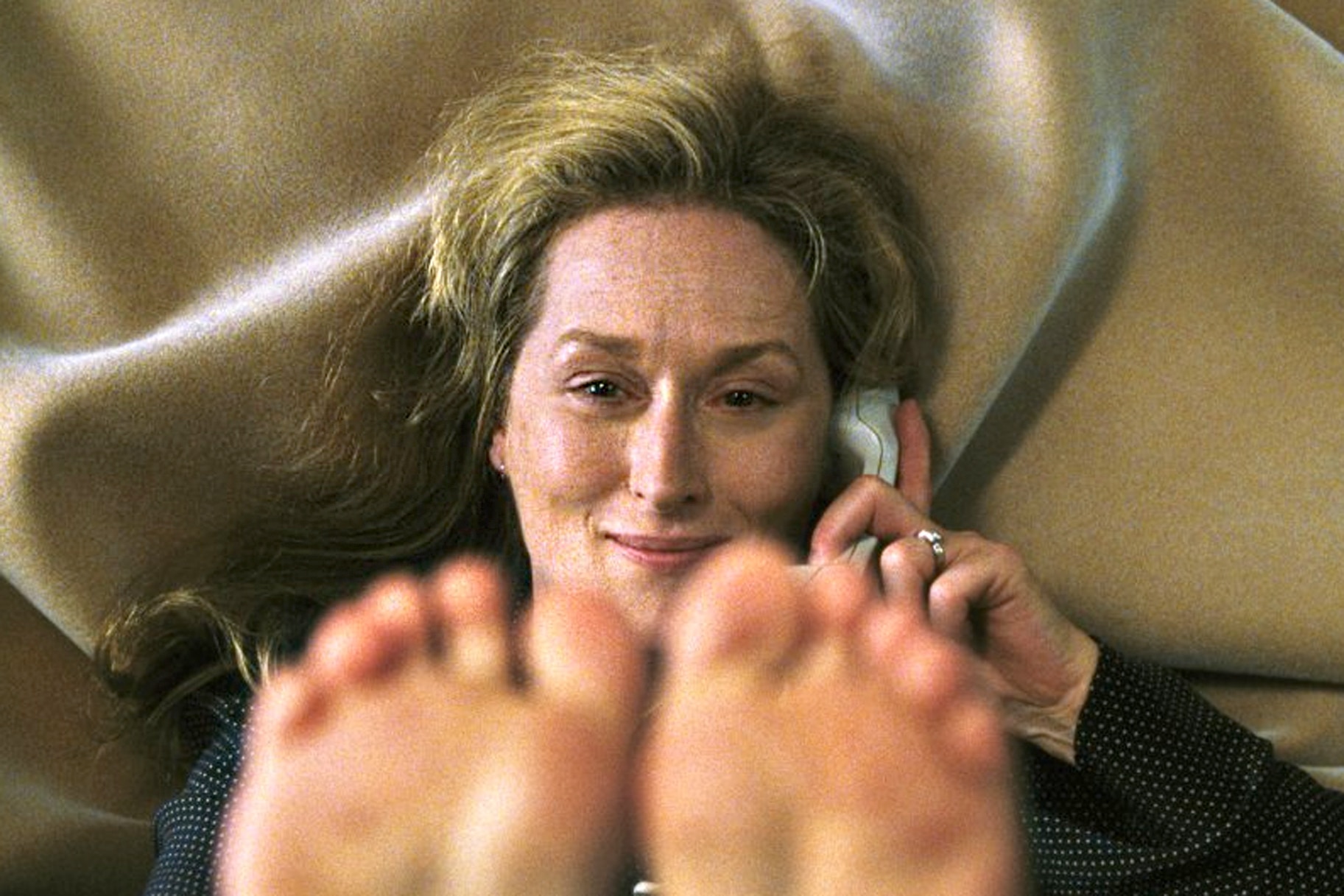"What a bewilderingly brilliant and entertaining movie this is--a confounding story about orchid thieves and screenwriters, elegant New Yorkers and scruffy swamp rats, truth and fiction. "Adaptation" is a movie that leaves you breathless with curiosity, as it teases itself with the directions it might take. To watch the film is to be actively involved in the challenge of its creation."
The movie is the second collaboration between Kaufman and director Spike Jonze, after the equally brilliant "Being John Malkovich" (1999). Jonze spends most of his time making music videos and documentaries, but when he makes a movie, it's a spellbinder, and he has the serene confidence to wade into this Kaufman screenplay and know that he can pull it off.
The movie is inspired by The Orchid Thief, based on a New Yorker article by Susan Orlean (Meryl Streep). She writes about a Florida orchid fancier named John Laroche (Chris Cooper), who is the latest in a long history of men so obsessed by orchids that they would steal and kill for them. Laroche is a con man who believes he has found a foolproof way to poach orchids from protected Florida Everglades; since they were ancestral Indian lands, he will hire Indians who can pick the orchids with impunity.
We meet Charlie Kaufman ,screenwriter, and his (fictitious) twin brother Donald, both played by Nicolas Cage, who finds subtle ways so that we can always tell them apart. They're like the twins in the old joke, one pessimistic, one optimistic.
Charlie has been hired to adapt the book, and is stuck. There is so much about orchids in the book, and no obvious dramatic story line. Having penetrated halfway into the book myself, I understood his problem: It's a great story, but is it a movie? Charlie is distraught. His producer, Valerie (Tilda Swinton), is on his case. Where is the first draft? He hardly has a first page. He relates his agony in voiceover, and anyone who has ever tried to write will understand his system of rewards and punishments: Should he wait until he has written a page to eat the muffin, or ..
Charlie sweats blood over his screenplay. His copy of the book is thick with Post-It notes, the text painted with yellow and red high-lighters. He has highlighted about everything.
The third major character is John Laroche (Chris Cooper), a swamp rat with no front teeth, who lives at home with his dad and describes himself as "probably the most brilliant man I know." At one time, he tells Susan, he had the largest collection of Dutch mirrors in the world. At another, he had a rare collection of tropical fish. He is the only man he knows who can breed the rare Ghost Orchid under glass. When he tires of an obsession, he drops it cold. "Finished with fish," he says, and in context, it's one of the movie's funniest lines.
During all of its dazzling twists and turns, the movie remains consistently fascinating not just because of the direction and writing, but because of the lighthearted darkness of the performances.
The performances are wonderful. When Streep's character ingests an obscure Indian drug, wriggles her toes and does a phone-tone duet with Laroche, you wonder what other actress could have done it so well.
And Cage.
He alway seems so earnest. However improbable his character, he never winks at the audience. He is committed to the character with every atom and plays him as if he were him. His success in making Charlie Kaufman a neurotic mess and Donald Kaufman a carefree success story, in the same movie, comes largely from this gift.


%2010.jpg)





-2.jpg)
.webp)




.jpg)